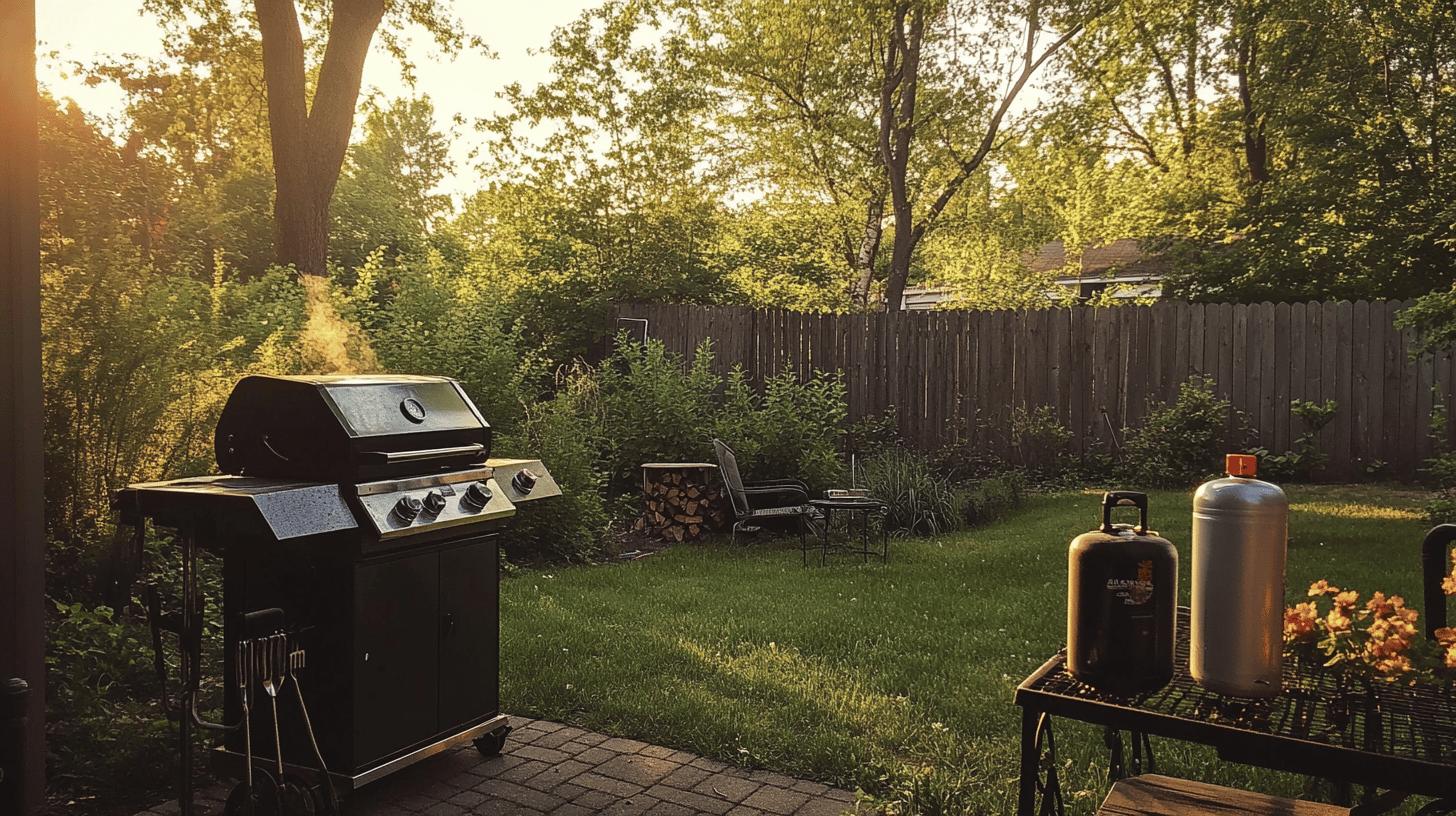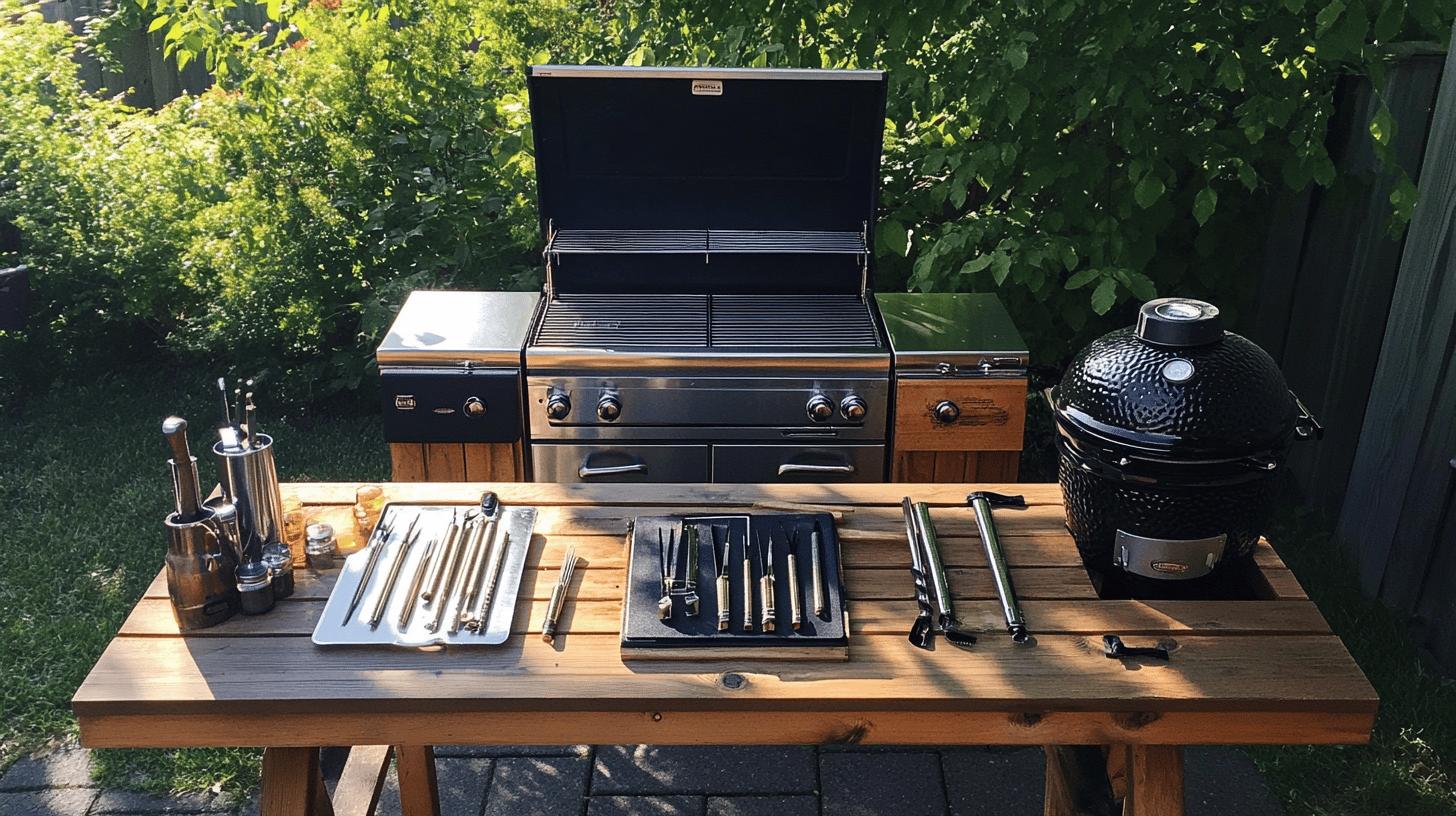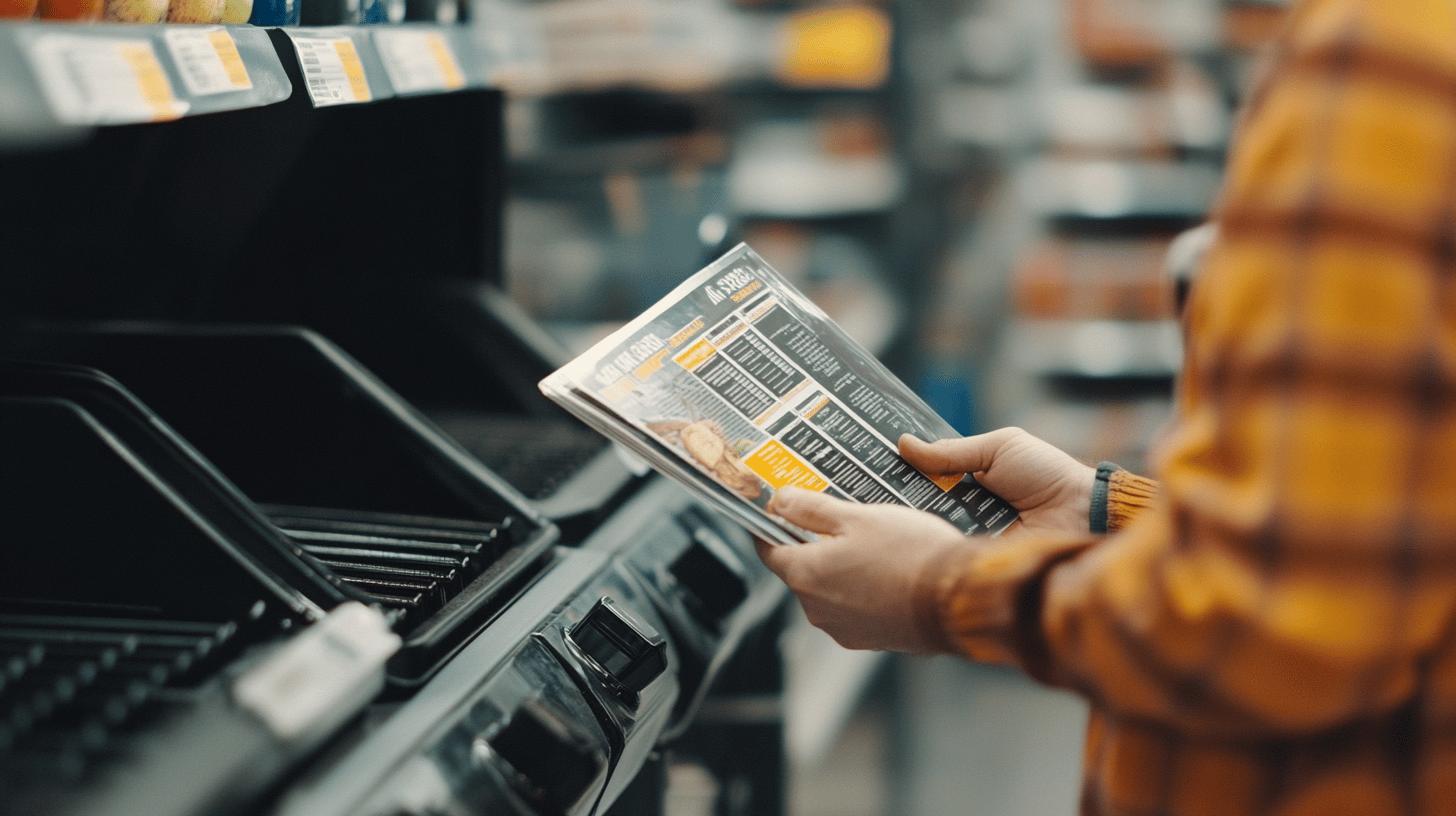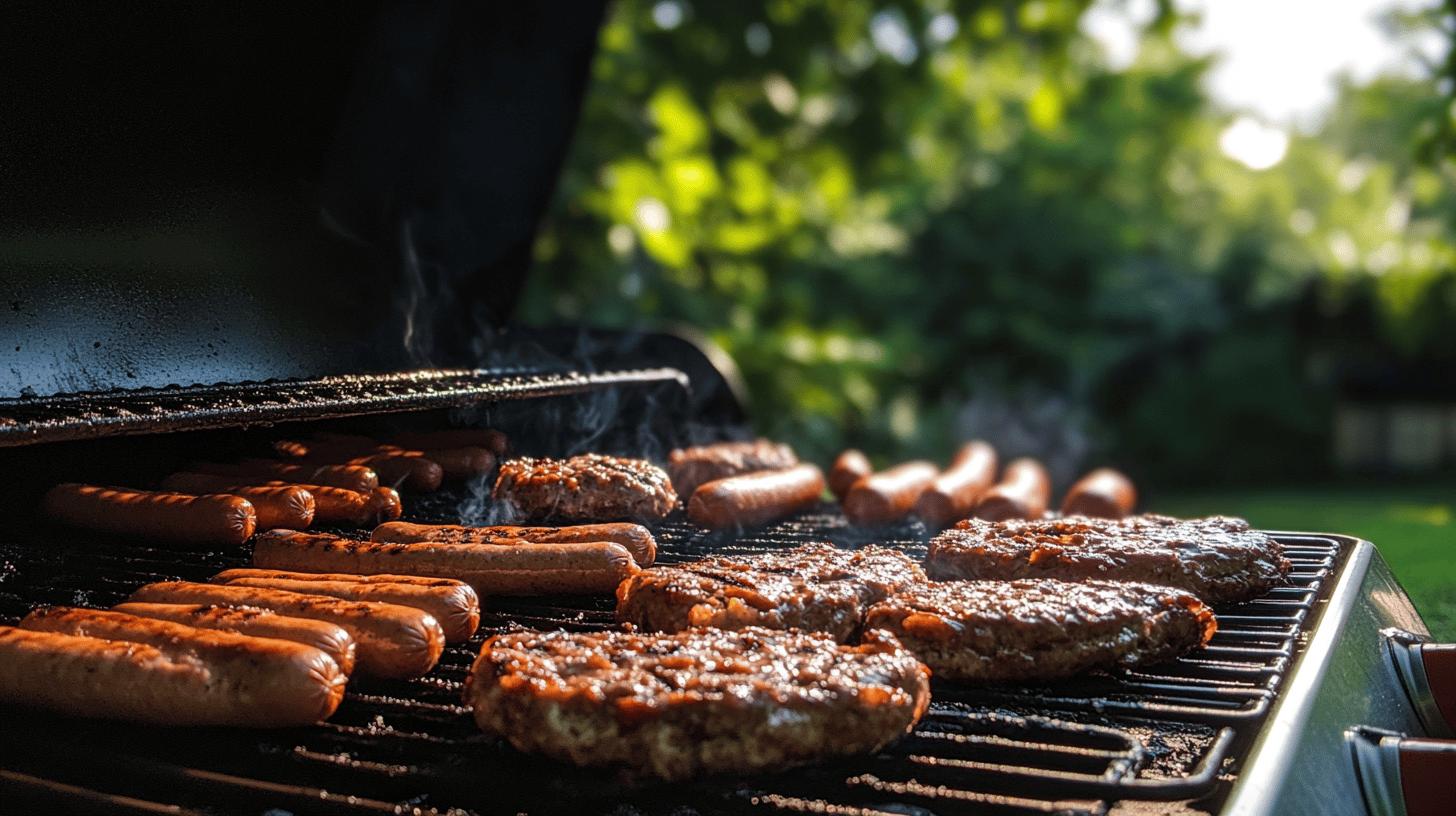The Complete Guide to Gas Grills: Everything You Need to Know
Are gas grills the unsung heroes of backyard cooking, or are they just a compromise for convenience seekers? If you’re pondering this, you’re not alone. The debate between traditional charcoal grills and modern gas grills has enthusiasts on both sides fired up. With their simplicity and swift heating capabilities, gas grills are like the fast-food version of BBQ – ready to serve in minutes without the hassle. But does speed outweigh the experience of a leisurely charcoal session? Stick around as we explore whether gas grills truly deliver a sizzling experience or leave your taste buds wanting more.
Exploring the Benefits of Gas Grills for Backyard Grilling
Gas grills are a beacon of convenience for anyone looking to enjoy backyard grilling without the fuss. With their straightforward dial controls, using a gas grill is akin to operating a kitchen stove. They heat up swiftly, usually within 10 to 15 minutes, making them perfect for those who want to get grilling quickly. This quick start-up time is a boon for fast meal preparation, ensuring you spend more time savoring your food rather than waiting around.
- Ease of Use: Simple dial controls make it easy to adjust heat levels, much like a stove.
- Quick Heating: Ready to grill in about 10-15 minutes, ideal for impromptu cookouts.
- Precision Temperature Control: Allows for diverse cooking techniques such as searing, roasting, and baking.
- Less Cleanup: Gas grills don’t produce ash, leading to a quicker post-cooking cleanup.
- Maintenance Advantage: Reduced debris means less frequent deep cleaning sessions.
These advantages make gas grills a popular choice for backyard chefs aiming for efficiency and ease. Imagine transforming your outdoor space into a backyard grilling station, where every tool and accessory is within arm’s reach, enhancing not only the convenience but also the joy of grilling. A well-designed grilling station can elevate your cooking experience, making it seamless and enjoyable. With everything organized and accessible, you can focus more on crafting delicious meals and less on the logistics of your setup. Whether you’re a seasoned griller or a weekend enthusiast, a dedicated grilling station can be the cornerstone of memorable outdoor gatherings. The precision temperature control stands out as a key feature, allowing you to experiment with different cooking techniques and achieve consistent results. Whether you’re searing a steak or slowly roasting vegetables, gas grills provide the flexibility needed for a variety of recipes. Plus, the reduced cleanup effort means you can focus on enjoying the company of friends and family without the hassle of dealing with ash and residue. This combination of features ensures that gas grills are not just a tool but a gateway to a more enjoyable outdoor cooking experience.
Understanding the Drawbacks of Gas Grills in Backyard Grilling

When it comes to backyard grilling, gas grills often carry a heftier price tag compared to their charcoal counterparts. The initial cost starts around $200, but more durable models can easily climb to $500 or more. This investment is accompanied by ongoing maintenance requirements, primarily linked to the need for a continuous fuel source. Whether you opt for a natural gas line or propane tanks, there are associated costs and upkeep considerations. Propane tanks, for instance, typically cost about $20 to purchase and refill, and keeping a steady supply is essential to prevent interruptions during grilling sessions.
- Lack of traditional smoky flavor compared to charcoal grills.
- Higher initial cost, with durable models priced upwards of $500.
- Requires a constant fuel source, either a gas line or propane tanks.
- Potential safety concerns related to gas leaks.
These drawbacks can significantly influence a buyer’s decision when choosing between gas and charcoal grills. For many, the absence of that quintessential smoky flavor is a key consideration, especially for those who prioritize the taste and aroma of their grilled foods. The higher upfront cost and ongoing fuel expenses might deter budget-conscious grillers. Additionally, the requirement to ensure safe and consistent fuel flow introduces another layer of complexity and potential risk. Ultimately, the choice to invest in a gas grill hinges on weighing these factors against the convenience and control that gas grills offer, making it a decision deeply rooted in personal grilling priorities and preferences.
Gas Grills vs Charcoal Grills: A Comprehensive Comparison
When it comes to backyard grilling, the decision between gas and charcoal grills is often a matter of weighing convenience against flavor. Gas grills are cherished for their ease of use and quick start-up, while charcoal grills are celebrated for imparting that rich, smoky flavor many grill enthusiasts crave. Each type has its unique set of features that cater to different preferences and grilling styles.
| Grill Type | Key Features |
|---|---|
| Gas Grill | Quick heating (10-15 minutes), easy temperature control, minimal cleanup |
| Charcoal Grill | Rich smoky flavor, more affordable fuel, excellent for high-heat searing |
| Gas Grill | Requires propane or natural gas, higher initial cost |
| Charcoal Grill | Manual temperature control, more effort to start and maintain |
Taste and cooking experiences vary significantly between the two options. Gas grills, with their precise temperature control, offer versatility in cooking techniques, from roasting to baking. However, they fall short in delivering that distinctive smoky aroma, a hallmark of traditional barbecue. On the other hand, charcoal grills excel in flavor, providing that classic grilled taste that many find irreplaceable. Yet, they require a bit more patience and skill to manage the fire and achieve the desired cooking temperature.
Deciding between gas and charcoal largely depends on what you value most in your grilling experience. If convenience and speed are your top priorities, gas grills offer a hassle-free, efficient solution. However, if you’re someone who enjoys the ritual of grilling and the unbeatable taste of smoke-kissed meats, a charcoal grill might be your perfect match. Budget considerations, frequency of use, and your taste preference will ultimately guide your choice, ensuring your backyard grilling setup aligns with your culinary ambitions.
Gas Grill Accessories and Enhancements for Better Grilling

Accessories are your secret weapon when it comes to getting the most out of your gas grill. They elevate the grilling experience by adding flavor, increasing convenience, and enhancing cooking versatility. Whether you’re looking to mimic the smoky taste of a charcoal grill or simply make cleanup a breeze, the right tools can transform how you grill. Popular add-ons like smoker boxes allow you to infuse food with rich, smoky flavors, while rotisserie kits ensure even cooking for larger cuts of meat. Grill mats and other accessories not only simplify the cooking process but also significantly reduce post-grill cleanup time.
- Smoker Boxes: Add a smoky flavor to your dishes by placing wood chips inside.
- Rotisserie Kits: Perfect for evenly cooking poultry and roasts.
- Grill Mats: Prevent food from sticking and make cleaning up easier.
- Thermometers: Ensure precise cooking by monitoring internal food temperatures.
- Grill Lights: Keep your grilling area well-lit for nighttime cooking.
These accessories address some of the common drawbacks associated with gas grilling, such as the absence of a smoky flavor and the hassle of cleaning. By incorporating these tools, you can not only enhance the taste and quality of your grilled foods but also enjoy a more seamless and enjoyable cooking process. Whether you’re a weekend griller or an everyday BBQ enthusiast, these enhancements make a significant difference in your outdoor cooking adventures.
Tips for Maintaining Your Gas Grill for Longevity
Regular maintenance is key to ensuring your gas grill operates safely and efficiently. A well-maintained grill not only delivers consistent performance but also extends its lifespan. By keeping an eye on essential aspects like cleaning grates, checking for gas leaks, and ensuring a steady fuel supply, you safeguard against potential safety hazards and keep your grill in top-notch condition for every backyard BBQ session.
- Clean the grates after each use to prevent grease buildup.
- Regularly check for gas leaks by applying soapy water to the connections and looking for bubbles.
- Ensure burner tubes are free from clogs to maintain even heat distribution.
- Inspect and replace propane tanks or fuel lines as necessary to avoid interruptions.
- Store the grill in a covered area or use a grill cover to protect it from the elements.
Adhering to these maintenance practices not only prolongs the life of your gas grill but also enhances your grilling experience. With proper upkeep, your grill remains reliable, providing delicious meals without unexpected hiccups. By dedicating a little time to regular care, you ensure that your gas grill continues to be a valuable tool for creating memorable outdoor cooking moments.
The Cost of Gas Grills: Analyzing Affordability and Value

Gas grills typically carry a higher price tag compared to charcoal grills, with entry-level models starting around $200. More robust and feature-rich options can easily exceed $500. Several factors influence these costs, including brand reputation, materials used, and additional features like side burners or rotisserie kits. While the initial investment might seem steep, these grills are designed for convenience and efficiency, appealing to those who frequently enjoy backyard cooking.
Balancing the initial expense with long-term benefits is crucial for potential buyers. Gas grills offer ease of use, quick heating, and precise temperature control, making them a valuable asset for regular grillers. Warranties, which can vary widely, provide an added layer of assurance, covering potential repairs and replacement parts. For those who grill often, the convenience and consistent performance of gas grills can justify the upfront cost, turning them into a worthwhile investment that enhances outdoor cooking experiences over time.
Final Thoughts: Is a Gas Grill Right for You?
After years of grilling on both gas and charcoal, here’s what I’ve learned: there’s no wrong choice – just different paths to delicious food. A gas grill might be perfect if you:
- Love to grill on weeknights
- Want precise temperature control
- Prefer quick cleanup
- Don’t mind the higher upfront cost
Remember, the best grill is the one you’ll use most often. Whether that’s gas or charcoal, what matters is that you’re out there creating delicious meals and memories with friends and family.
Got questions about gas grills? Drop them in the comments below – I’d love to help you make the right choice for your backyard cooking adventures!
Happy grilling! 🔥
Frequently Asked Questions About Gas Grills
Charcoal vs Gas Grill Health
A healthy grilling experience often depends on cooking methods and personal preferences. Gas grills tend to produce fewer harmful compounds like polycyclic aromatic hydrocarbons (PAHs) compared to charcoal grills.
Gas Grill vs Charcoal Grill Taste
In terms of taste, charcoal grills typically provide a rich, smoky flavor, favored by many for traditional grilling. Gas grills, while convenient, may require accessories like smoker boxes to add similar flavor complexity.
Gas Grills: Advantages, Disadvantages, and How They Work
Gas grills offer convenience, quick heating, and precise temperature control. They lack the smoky flavor of charcoal grills and require maintenance of gas supply. Overall, they offer a cleaner cooking process.
Gas vs Charcoal Grill Carcinogens
Grilling with gas generates fewer carcinogens than charcoal. Managing flare-ups and avoiding over-charring helps minimize these health risks across both types of grills.
Which Is Better for the Environment: Charcoal or Gas Grill?
Gas grills are generally more eco-friendly than charcoal grills due to lower emissions. Charcoal’s production process can deplete resources and increase air pollution.
Pros and Cons of Gas and Charcoal Grills
Gas grills are convenient and clean, while charcoal grills provide traditional flavors. Gas lacks smokiness and costs more initially, but is easier to control and maintain.
Charcoal vs Propane Grill Health
Propane grills typically offer a healthier grilling method compared to charcoal, reducing the production of harmful compounds and smoke-related pollutants.
What Are the Disadvantages of a Gas Grill?
Disadvantages include higher initial costs, lack of smoky flavor, and dependency on fuel supplies like propane tanks or natural gas lines.
Is Grilling on a Gas Grill Healthy?
Grilling on a gas grill can be healthy, generally producing fewer carcinogens than charcoal, while still allowing for a wide range of cooking techniques.
What Is the Healthiest Outdoor Cooking Method?
Steaming or using gas grills are among the healthier outdoor cooking methods, minimizing harmful compound formation while cooking.
Is It Better to Have a Natural Gas Grill or Propane?
Both options have merit; natural gas offers a steady supply without tank refills, while propane is portable and may be more suitable for versatile setups.






